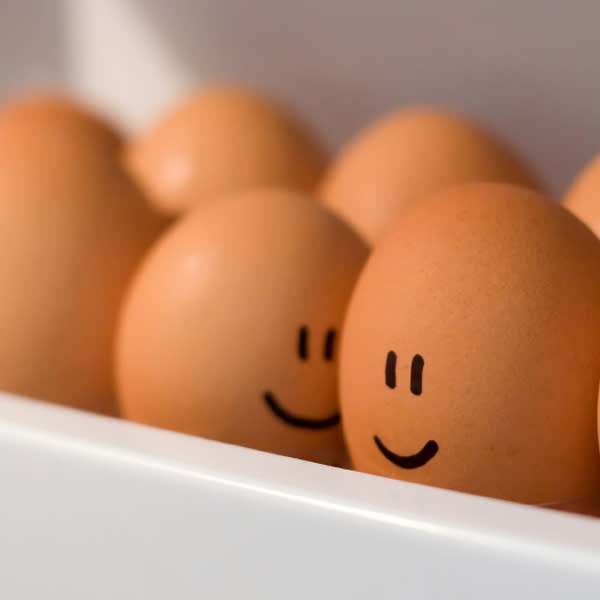Foods that will boost your mood

HAVE MORE
Sardines
The omega-3 fatty acids found in oily fish such as salmon, mackerel and sardines make up a large percentage of our brain tissue – mostly in the brain cell membranes – and researchers have found that people with low levels of omega-3s may be more prone to depression and low mood. As well as being vital for a healthy brain, it’s thought these essential fats may help improve mood by keeping cell membranes flexible so that the neurotransmitters – the brain’s messaging chemicals – can work effectively. Your body can’t make these essential fatty acids, so you need to get them from food.
Oats
Low-GI carbohydrates such as oats, pulses and wholegrain rice and pasta release glucose slowly into the blood stream, which helps to keep your blood sugar and your mood stable – and they give a boost to your immune system. US scientists Judith and Richard Wurtman, who pioneered research into the food/mood connection, found carbohydrates play a key role in enabling tryptophan, an amino acid that’s converted into the neurotransmitter serotonin, to enter the brain. As well as improving your sense of wellbeing and happiness, serotonin is also thought to help regulate appetite and sleep patterns.
Spinach
Several studies have shown that people with low levels of the B vitamin folic acid are more likely to feel low or depressed. Eating leafy green vegetables – spinach, broccoli, asparagus and brussels sprouts, for example – as well as calf’s liver, lentils and fortified breakfast cereals will help keep your levels up.
Chocolate
The good news is, everyone’s favourite pick-me-up is packed with ingredients that have feel-good potential – although some experts maintain the levels are too low to have any real impact on brain chemistry. As well as the stimulants caffeine and theobromine, good-quality chocolate also contains traces of phenylethylamine, a chemical similar to amphetamine, which helps trigger the release of endorphins. To complete this heady cocktail, chocolate also contains chemicals that slow the breakdown of a naturally occurring substance in the body which mimics – to a tiny degree – the euphoric effect of cannabis in the brain.
Chicken
Eat chicken and turkey breast, nuts, seeds and pulses to increase your intake of the amino acid tryptophan and help boost serotonin production (see oats).
Brazil nuts
These are the richest source of the mineral selenium (eggs are good, too – see below). In recent years, intakes of this vital mineral have declined and many people now consume less than the recommended daily amount (RDA). Several studies have shown more depression, irritability and anxiety in people with low selenium levels, so eating brazil nuts a couple of times a week might help to give you a mood boost.
Eggs
As well as being a good source of tryptophan and selenium, eggs are one of the few food sources of vitamin D (we get most from sunshine), which may help guard against a low mood. Eggs also contain choline, which is vital for brain health.
Water
It’s something we often overlook, but water is vital for every cellular function. “It’s not just your body that’s affected by hydration but also your brain,” says Dr Emma Williams of the British Nutrition Foundation. “Even mild dehydration can impair your ability to concentrate.” So remember to drink often, whatever the weather.
HAVE LESS
Caffeine
In the short term it improves alertness and energy, although the latest research by scientists at Bristol University suggests the boost that regular coffee drinkers get from their morning cup is nothing more thana reversal of the effects of withdrawal – once they get their ‘fix’, they feel better. Too much caffeine can leave you irritable, jumpy and prone to withdrawal headaches if you miss out on your regular dose.
Sugar
You might crave sugary foods when you’re feeling tired and low, and it is true that a couple of biscuits or a slice of cake will give you an instant lift as the sugar hits your blood stream. However, the effect is short-lived. As your sugar level dips, your energy levels will crash, along with your mood, and you’ll find yourself reaching for the biscuit tin again. Instead, choose slow-release snacks such as nuts and raisins, a piece of fruit and someseeds or natural yogurt with added fruit.
Alcohol
Too much of this delivers a double whammy on the mood front. While the first glass or two will help you to feel relaxed and at peace with the world, overdoing it has the opposite effect, often leaving you feeling jittery and depressed the day after. Alcohol also inhibits the absorption of many of the nutrients vital to brain health.
Mood-enhancing recipes


